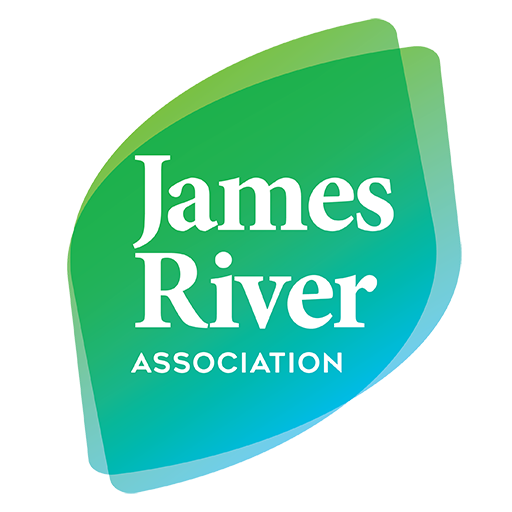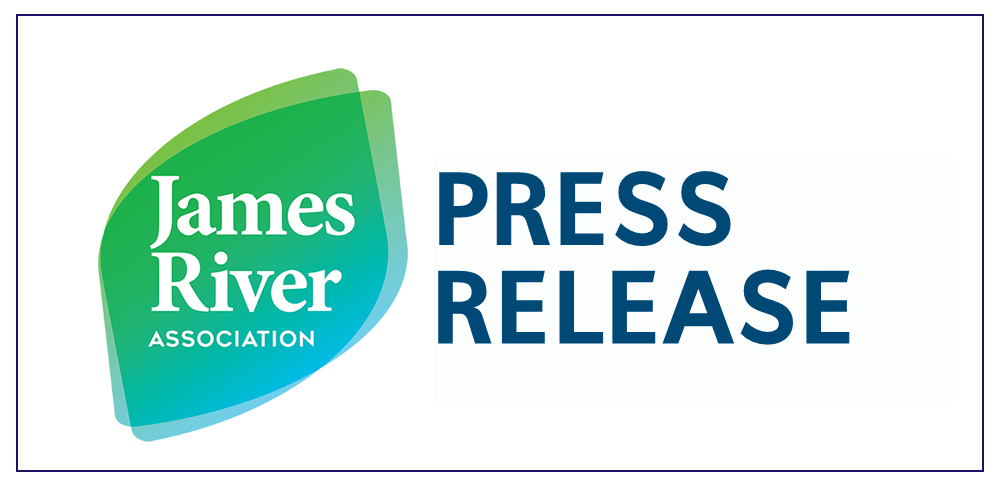PRESS RELEASE
FOR IMMEDIATE RELEASE:
Tuesday, November 16, 2021
CONTACT:
Erin Hillert, Marketing & Communications Manager
James River Association
(e) ehillert@thejamesriver.org (c) 608.239.2644
James River Health Remains Stable but Threatened
The James River has received a B- grade for nearly a decade.
The James River Association (JRA) released their biennial State of the James report card, showing the overall health of the river at a grade “B-”, with a score of 61%. Although the grade for the James has remained in the B- range since 2015, the overall score dropped one point from 2019 and two points since the recent high of 63%.
“While the James has made tremendous progress since its failing health in the 1970’s, to continue making progress and meet Virginia’s goals for the James in the face of increased population, climate change and other new threats will take greater urgency and commitment,” said Bill Street, CEO for the James River Association. “The results of the 2021 State of the James strengthens our resolve to remain diligent and deliberate in our mission to achieve a fully healthy river supporting thriving communities,”
Since its inaugural release in 2007, JRA’s State of the James has examined the status and trends of eighteen separate indicators across two categories, River Health and River Restoration Progress, that track progress toward goals for the James River that are largely set by the Commonwealth of Virginia or another authority.
The decline that has occurred since 2017 reflects the impact of abnormally high rainfall experienced across the watershed in recent years causing increased polluted runoff throughout the James. While oysters and tidal water quality showed promising resilience over the past year by bouncing back from the surge of rainwater and pollution, the river also revealed stalled progress in phosphorus, nitrogen, and sediment pollution reductions, as well as stream health.
“We see that the river can bounce back if given the chance, but the increased amount and intensity of rainfall associated with climate change means we cannot delay needed investments,” said Anna Killius, Government Affairs and Policy Manager for JRA. “This year was the first time Virginia has fully funded programs to address polluted runoff from agricultural fields and development, but full funding must continue to meet the challenges ahead.”
Perhaps the most alarming indicator belongs to American shad, which fell to an all-time low, giving the State of the James its first ever 0% indicator. Often referred to as the “founding fish” because of their historical and cultural significance, American shad face an overwhelming combination of threats, including dam blockage, water withdrawals, invasive catfish and lack of underwater grasses for shelter.
“America’s founding fish is on the brink of collapse on America’s Founding River,” stated Jamie Brunkow, James RIVERKEEPER and Sr. Advocacy Manager for JRA. “We are calling on Virginia to develop an emergency recovery plan to ensure that this storied and crucial fish remains a part of the James River ecosystem and our communities for generations to come.”
For more information about the State of the James report, visit www.stateofthejames.org or contact Erin Hillert, JRA’s Marketing & Communications Manager, at ehillert@thejamesriver.org or 608.239.2644.
2021 State of the James: Statements from Corroborators
On the Importance of River Report Cards:
“River report cards are a powerful tool in helping communicate complex ecological systems in an understandable way to the general public,” says Dr. William Dennison, Vice President of Science Application at the University of Maryland Center for Environmental Science, which produces an annual Chesapeake Bay Report Card. “People are integral to the health of our waterways and only through understanding will individuals take action to improve both our rivers and our communities.”
On the Impacts of Climate Change on River Health:
“The intensity and frequency of storm events is changing in our region as a result of climate change,” says Dr. Greg Garman, Director, VCU Rice Rivers Center. “Research conducted at the Center provides the scientific foundation for critical conservation actions that support recovery of economically and ecologically important species, including migratory birds and fish, as well as effective protection and restoration of the tidal wetland and riverine habitats on which these and other species depend. The State of the James report demonstrates that climate driven nutrient and sediment pollution threatens to stall our progress in restoring the James River, but also that focus on conservation actions to enhance resiliency can help buffer and protect the river ecosystem.”
“Climate change is causing increased stormwater runoff, which can severely damage local streams and undermine the health of major rivers like the James,” said Tom Schueler, Executive Director of the Chesapeake Stormwater Network. “We are already seeing the impacts of record amounts of rain and more intense downpours, and must account for these conditions to protect the health and safety of our waterways and communities.”
On the State of American Shad in the James River:
“Despite heroic and ongoing attempts by a variety of agencies towards lessening the threats to shad in the James River, the species continues to decline,” says Dr. Charles Gowan, Professor of Environmental Studies and Biology at Randolph-Macon College. “Dams, poor water quality, loss of habitat, water withdrawals and invasive species have combined to make a self-sustaining shad population impossible right now. Continued progress on all these threats will get us there, and our kids and grandkids will thank us for it.”

ABOUT THE JAMES RIVER ASSOCIATION: The James River Association is a member-supported nonprofit organization founded in 1976 to serve as a guardian and voice for the James River. Throughout the James River’s 10,000-square mile watershed, the James River Association works toward its vision of a fully healthy James River supporting thriving communities. The James River Association believes that “when you change the James, the James changes you”. With offices in Lynchburg, Richmond, Williamsburg, and Scottsville, the James River Association is committed to protecting the James River and connecting people to it. For more information visit www.thejamesriver.org.

